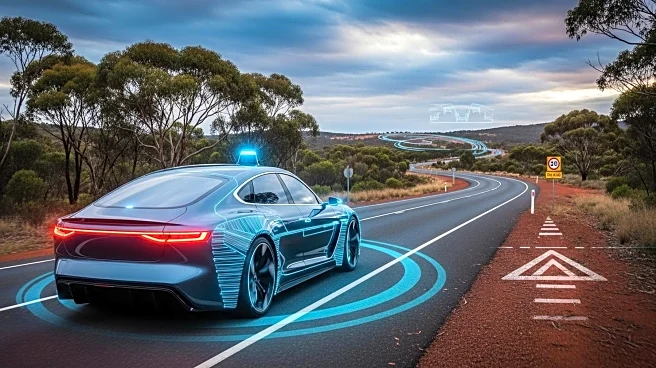What is the story about?
What's Happening?
Tesla is set to introduce its Full Self-Driving (Supervised) mode in Australia and New Zealand, but the technology is facing scrutiny over its legal and safety implications. The mode is classified as Level 2 Autonomy, requiring drivers to remain attentive and ready to take control. A recent video showing a Tesla navigating Melbourne's roads without driver intervention has raised concerns, as such trials have not been approved by authorities. Tesla's branding of FSD as a step towards full autonomy is seen as misleading, and the company is facing a class action lawsuit in Australia over 'phantom braking' incidents.
Why It's Important?
The introduction of Tesla's FSD mode in Australia highlights the ongoing challenges in the development and deployment of autonomous vehicle technology. Legal and regulatory frameworks are still evolving, and Tesla's approach has sparked debates over safety, public trust, and the definition of 'self-driving.' The company's legal challenges, including the class action lawsuit, underscore the potential risks and liabilities associated with autonomous systems. As Tesla and other automakers push towards greater autonomy, addressing these issues will be critical to gaining consumer confidence and achieving widespread adoption.
Beyond the Headlines
The controversy surrounding Tesla's FSD mode reflects broader questions about the future of autonomous vehicles and the balance between innovation and regulation. As technology advances, automakers and regulators must navigate complex ethical and legal considerations, including liability in the event of accidents. The outcome of Tesla's legal challenges and regulatory scrutiny could set important precedents for the industry and influence the development of autonomous vehicle policies worldwide.















